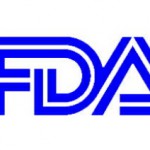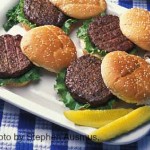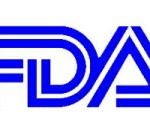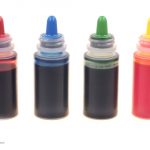Just in time for Halloween, Center for Food Safety has issued a press release saying that MARS Corporation, a candy company, is reiterating its commitment to removing titanium dioxide from its food products. The company released a statement in February stating that it would remove artificial colors from its products in five years, but that statement wasn't clear on the issue of titanium dioxide. Titanium dioxide is a chemical used to engineer nanomaterials. It occurs naturally in the environment, but when it is engineered to an "ultrafine" or "nanoparticle" size it may cause health problems in people. Jaydee Hanson, Senior Policy Analyst at Center for Food Safety said in a statement, "studies have shown that the human health risks associated with ingesting nanoparticles of many … [Read more...]
Groups Urge FDA to Withdraw Approval of Ortho-Phthalate Food Additives
Consumer and public health groups, including the Consumer Federation of America, are urging the FDA to withdraw approval of ortho-phthalate food additives used in food packaging and food handling equipment. The groups filed a citizen's petition with the government. Those chemicals are used as plasticizers, binders, coating agents, defoamers, gasket closures, and slimicide agents on machines used to process and package food. Any chemicals that are "reasonably expected" to get into food from their use in materials are considered food additives. The government lets food producers use these compounds in cellophane, paper, paperboard, and plastics that come into contact with food. Studies have linked these compounds to developmental, reproductive, and endocrine health problems. In fact, … [Read more...]
Panera Removing Additives from Food
The restaurant chain Panera is expanding the list of additives they will no longer have in the food they sell. By the end of 2016, all of the food it offers for sale will be free of artificial colors, sweeteners, and flavors. Panera just published a "No No List" of additives they are forbidding in their products. Some of those ingredients include nitrates/nitrites, aspartame, theobromine, BHA, BHT, and artificial colors. The restaurant is striving to serve clean food to its customers. Environmental Working Group, a food advocacy organization, is praising Panera's decision. Ken Food, EWG president said in a statement, "with this bold commitment, Panera is showing impressive leadership in the restaurant industry to give consumers what they increasingly demand: food with fewer … [Read more...]
EWG Launches Petition to Remove Propyl Paraben
Environmental Working Group (EWG) has launched a petition to remove propyl paraben, an endocrine disruptor, from the country's food. This ingredient is in 49 processed foods, including Sara Lee cinnamon rolls, Weight Watchers cakes, Energy Club nuts and chocolate blend, Entenmann's Coconut Crunch Donuts, Setton Farms' trail mix, and La Banderita corn tortillas. Propyl paraben is on EWG's Dirty Dozen Guide to Food Additives. The FDA has listed propyl paraben as GRAS, or "generally recognized as safe." But there is evidence that propyl paraben disrupts the endocrine system, which regulates metabolism, sexual function, sleep, reproduction, and mood. A 2010 study at the CDC found that 92.7% of Americans tested had propyl paraben in their urine. Researchers at the Tokyo Metropolitan … [Read more...]
Dirty Dozen Food Additives Guide Published
Environmental Working Group has published its first-ever "dirty dozen" guide to food additives. That organization has a "dirty dozen" list of produce that contains large amounts of pesticides and herbicides. This list is for label readers; it tells you which additives to avoid. Nitrates and nitrates are first on the list; they are chemicals used in cured meats to make the product pink and add flavor. Nitrites have been linked to stomach cancer and may be associated with brain and thyroid cancers. Scientists at the World Health Organization have declared that these chemicals are probable human carcinogens. Potassium bromate is next on the list. This chemical strengthens wheat doughs and help them rise during baking. It is listed as a known carcinogen by the state of California. It is … [Read more...]
Most Kids Exposed to Food Dyes
The Food and Drug Administration has found that 96% of children age 2 to 5 years are exposed to food dyes. Center for Science in the Public Interest petitioned the FDA in 2008 asking to ban eight of the nine certified color additives. CSPI senior scientist Lisa Y. Lefferts said in a statement, "such widespread exposure to artificially colored foods is bad news for all children, since artificially colored foods aren't healthy foods in the first place. The FDA is failing kids and parents by allowing the use of these purely cosmetic chemicals in food, which trigger behavioral problems in some children, as even FDA conceded in 2011." The full results of the exposure assessment have not been published. The assessment was based on the amount of color additives in almost 600 food products … [Read more...]
Center for Food Safety Sues FDA Over Food Additives
The Center for Food Safety has filed a lawsuit against the FDA over food additives. The suit asks the Court to vacate the government's 1997 proposed rule on generally recognized as safe (GRAS) additives that lets corporations determine if a substance is GRAS or not. CFS wants the agency to go back to its old process of having corporations petition FDA to approve a new additive based on scientific studies. That 1997 rule has never been finalized. Food Poisoning Bulletin has told you about this issue before. CFS says that because the government is "indefinitely operating under a proposed rule in lieu of promulgating a final rule, FDA has deprived the public of the vital procedural rights afforded by the Administrative Procedure Act." CFS says that these actions violate the APA's … [Read more...]
Noodles House Recalling Noodles for Unapproved Additives
LSG Food World, Inc. is recalling at least 4,100 cartons of Noodle House noodles because they contain unapproved color and undeclared food additives. The products were manufactured in China. There is no word on any injuries or illnesses associated with the consumption of these products. The recalled products are Noodles House Home Style Noodles, in a 32 ounce plastic bag. Twelve bags are packed per carton. For the UPC number 6 949682 801731, the best before dates are 01/29/2014 and 03/22/2014. For the UPC number 6 949682 801724, the best before dates are 01/29/14 and 04/09/2014. For the UPC number 6 949682 801748, the best before date is 01/29/2014. Finally, for the UPC number 6 949682 801755, the best before date is 01/29/2014. If you purchased these items, do not eat them. Return … [Read more...]
Study Alleges Conflicts of Interest in GRAS Determinations
When I was studying food science at the University of Minnesota, professors often mentioned the GRAS list. That list, which lists food additives that are "Generally Regarded as Safe", is used by manufacturers to choose additives to use when they are developing products. Back then, most additives on the GRAS list were included because they had been in circulation for a long time with no detectable harm to humans. But things have changed. Now additive companies submit GRAS designations as determined by their own employees or consulting firms they have hired. A new study published in the Journal of the American Medical Association alleges that people selected by manufacturers to make GRAS determinations have "conflicts of interests between their obligations to ensure that the use of the … [Read more...]
FDA Applauds Wrigley For Pulling Caffeinated Gum From Market
A little more than a week after introducing its latest chewing gum product, the William Wrigley Jr Co. has temporarily removed Alert Energy Caffeine Gum from the market while the U.S. Food and Drug Administration (FDA) rethinks its stance on caffeine as a food additive. The gum, which was rolled out in late April, was latest caffeine-added entry to the market which already includes other gums, jelly beans, trail mix and water. One piece of Alert Energy, which was sold in eight-piece bubble packs, had about as much caffeine as a half a cup of coffee, according to company. When sales of the gum began, the FDA’s Michael Taylor, deputy commissioner for foods and veterinary medicine, released a statement saying: “The only time that FDA explicitly approved the added use of caffeine in a food … [Read more...]










